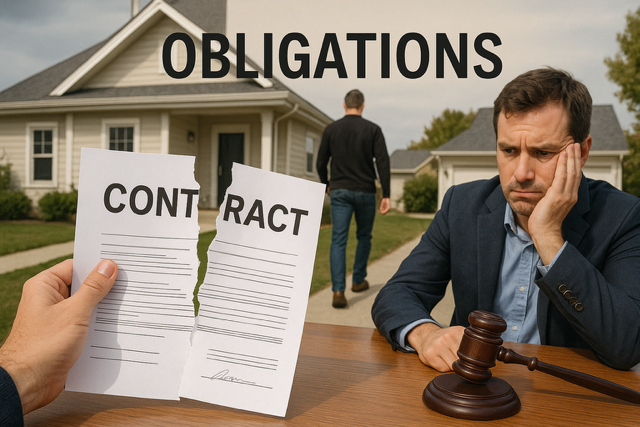Blog

“TBD by Seller” in Contract – What Can this Mean in a Contractual Dispute?
Authored By: Ryan A. Featherstone, Esq. rfeatherstone@dunlapmoran.com; 941.366.0115 A Florida court has recently emphasized the enforceability of contractual obligations of sellers, including those imposed by...

Disclosing Property Flood History
Authored By: Ryan A. Featherstone, Esq. rfeatherstone@dunlapmoran.com; 941.366.0115 In a recent legal development, the Florida Second District Court of Appeal reversed a trial court's decision that had favored the...

Cybersecurity in Real Estate: Protecting Yourself and Your Clients
Authored By: Ryan A. Featherstone, Esq. rfeatherstone@dunlapmoran.com or 941.366.0115 In today's fast-paced digital real estate world, email, Wi-Fi, smartphones, and other contemporary technology remain vital tools for...
Legal Update
Legal Update! Recent Important Case Law Below is a summary of 3 recent Florida published cases of note to any real estate practitioner in our state. Please take note of these important cases in your practice! Real...
The First Rule of Closings
THE FIRST RULE OF CLOSINGS SHOW ME THE MONEY! As a closing agent, we are in control of funds for the transaction, both in and out. Therefore, as should be expected, we determine when and how deposits and disbursements...
Waterfront Due Diligence Part 2
Waterfront Due Diligence Part 2: The Coastal A Zone “Coastal A” Zones in Florida were implemented in the 2017 revisions to the Florida Building Code. The Coastal A Zone is an area within a special flood hazard area,...
Waterfront Due Diligence
Waterfront Due Diligence: Enter at Your Own Risk In Florida, we all live on a peninsula, so in one respect we all live on waterfront property. But when you are purchasing or working with clients who may be interested...
Water, Water Everywhere
WATER, WATER EVERYWHERE (and now a disclosure to make) Authored By: Scott Dunlap, Esq. sdunlap@dunlapmoran.com Effective October 1, 2024, there is yet another disclosure for a Seller to provide to a Buyer of...
The Often Overlooked Property Feature
The Often Overlooked Property Feature: The Tenant We frequently handle closings that involve a lease or tenancy, and more often than not, we are not informed that the property is occupied by a tenant. This can lead to...
The New Normal
Virtual Closings Legal advancements: as of January 1, 2020, Remote Online Notarization became legal in Florida, meaning real estate documents can now be remotely notarized online. However, there are a few caveats....
